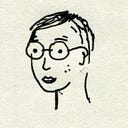Climate Justice — a practical guide 1
Hi! My name is Taeyoon. I’m an artist and teacher who works at the School for Poetic Computation in New York City. I’ve been making a series of ‘practical guide to everything’ on my Instagram. I’m posting this series on Medium because it needs a bit more text and links.
To start, here’s a bit of context in which I’m reading and writing this guide.
I’m inspired by Sunaura Taylor’s fantastic book “Beast of Burden” about the connection between climate and disability justice. I recommend everyone to watch Nabil Hassein’s powerful talk “Computing, Climate Change, and all our relationships“ on how climate justice relates to technology and Capitalism. I will share more references on racial justice, decolonization and other movements in the future guides.
As an artist and public speaker, I travel frequently for work. I’m complicit and conflicted about the negative environmental impact of my practice. I’m from South Korea, my family lives there. Recently, I was ashamed by the trash fire mountain of debris in South Korea, how South Koreans export their trash to countries like Philipines, and so much more. However, issues of waste management are not limited to South Korea. Most developing and developed countries share (or the lack of) responsibilities. The problems scale exponentially in larger countries like China, the US, and spread around the world.
Kyle McDonald is an artist who works with code. He’s been sharing his research about the environmental topics over the few years with me. I asked him for advice on making this guide. These are some questions I sent him.
- What are carbon offset programs and should I do it?
- Is vegetarianism actually helpful for the environment?
- Single-use plastics, how to best avoid and recycle them?
- Tech products, how to best use them long term and does that have an impact in the environmental justice at large?
- What’s the intersection of environmental, racial justice and how do they relate to the indigenous rights?
He offered a rich collection of references and contexts for understanding them. I’ll be sharing them in the guide over a few episodes. Before I start, I want to jump to the last part of his email.
“I wonder if the most appropriate guide is not about “how to make slightly better decisions for the environment” but more like “how to transition from first-world resource abundance to resource scarcity over the course of 20 years”. Including how to organize communities, farming, healthcare, transportation, communication. Practical knowledge around sustainability is neat, but it seems like the overall utility of that knowledge will be limited to a brief time span, maybe the past 30 years through the next 10 years. Then we will need a totally different set of skills and intuitions.” — Kyle McDonald
To embrace the complexities of these questions…
The climate mitigation gap: education and government recommendations miss the most effective individual actions by Seth Wynes and Kimberly A Nicholas.
This research result and its method are debatable. However, it’s a good starting point to think about personal and collective transformation. One approach is to think about our roles as consumers.
Other research like the Project Drawdown offers alternate strategies. While these are interesting, I’m more interested in personal and collective practices to understand the intersection of social justice and environmental justice.
There’s a high-level analysis of sustainable consumption from the UNEP.
I like the pragmatic suggestion of the UNEP — Less consumption, More sustainable development, Ethical consideration of values and redistribution of wealth and resources.
Next is a rough note, where I’m trying to figure out the connection between racial segregation, access to education, healthcare, a place to live and uneven development.
In this note, I’m trying to make sense of racial bias and segregation as it relates to the displacement of the racial minorities and the indigenous populations. I would rephrase ‘if all your friends look like you…’ as “we should all check on our racial bias.” This part is a bit out of place, so I circled it out. I was hoping to draw a connection to certain classism and racism among (mostly white, American or European, or those who have the financial freedom to live ‘Zero-Waste’) environmental activists who criticize the lower-income, immigrants and person of color for ‘not recycling’ or using single-use plastics. That type of criticism is based on racial and class bias, and should not be tolerated. Also, as the research shows, recycling is not a solution to a much larger structural environmental damage and Capitalism as we know it.
I’m not ready to explain the connection between racial and environmental justice in this guide. I can point you to others who are making sharp arguments. Jackie Wang’s Carceral Capitalism is a great place to start. American Artist teaches a class Dark Matters on the Critical theory of technology at the School for Poetic Computation where they address the complexities of these issues. Some of the students have been exploring this topic through writing and art projects. I’m inspired by their work. Along with Nabil Hassein, Sonia Boller, I co-organized a conference Code Ecologies to explore the connection between technology, environment, and social justice.
Let's move away from the white papers, conferences, and books for a minute and read some love letters.
If you’ve followed this guide up to this point, I want to direct your attention to an incredible activist, artist, writer Neema of the Radical Love Consciousness. Their work on reindigenization has been truly inspiring. Please support their work through Patreon, which will grant you access to read and view their work.
If you want to support me, you can buy my merchandise or make a tax-deductible donation via Open Collective. My website is taeyoonchoi.com
